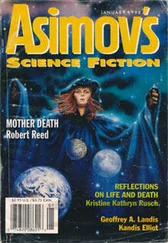Joy Williams - Taking Care
Здесь есть возможность читать онлайн «Joy Williams - Taking Care» весь текст электронной книги совершенно бесплатно (целиком полную версию без сокращений). В некоторых случаях можно слушать аудио, скачать через торрент в формате fb2 и присутствует краткое содержание. Год выпуска: 2010, Издательство: Vintage, Жанр: Современная проза, на английском языке. Описание произведения, (предисловие) а так же отзывы посетителей доступны на портале библиотеки ЛибКат.
- Название:Taking Care
- Автор:
- Издательство:Vintage
- Жанр:
- Год:2010
- ISBN:нет данных
- Рейтинг книги:5 / 5. Голосов: 1
-
Избранное:Добавить в избранное
- Отзывы:
-
Ваша оценка:
- 100
- 1
- 2
- 3
- 4
- 5
Taking Care: краткое содержание, описание и аннотация
Предлагаем к чтению аннотацию, описание, краткое содержание или предисловие (зависит от того, что написал сам автор книги «Taking Care»). Если вы не нашли необходимую информацию о книге — напишите в комментариях, мы постараемся отыскать её.
Taking Care — читать онлайн бесплатно полную книгу (весь текст) целиком
Ниже представлен текст книги, разбитый по страницам. Система сохранения места последней прочитанной страницы, позволяет с удобством читать онлайн бесплатно книгу «Taking Care», без необходимости каждый раз заново искать на чём Вы остановились. Поставьте закладку, и сможете в любой момент перейти на страницу, на которой закончили чтение.
Интервал:
Закладка:
“Hullo,” the young man said to the girls.
“We were speaking of Père-Lachaise, the legendary Parisian cemetery,” Mr. Muirhead said. “So wistful. So grand and romantic. Your mother and I visited it, Jane, when we were in Paris. We strolled through it on a clear crisp autumn day. The desires of the human heart have no boundaries, girls. The mess of secrets in the human heart are without number. Witnessing Père-Lachaise was a very moving experience. As we strolled, your mother was screaming at me, Jane. Do you know why, honey-bunch? She was screaming at me because back in New York, I had garaged the car at the place on East 84th Street. Your mother said that the people in the place on East 84th Street never turned the ignition all the way off to the left and were always running down the battery. She said that there wasn’t a soul in all of New York City who didn’t know that the people running the garage on East 84th Street were idiots who were always ruining batteries. Before Père-Lachaise, girls, this young man and I were discussing the Panteón, just outside of Guanajuato in Mexico. It so happens that I am also familiar with the Panteón. Your mother wanted some tiles for the foyer so we went to Mexico. You stayed with Mrs. Murphy, Jane. Remember? It was Mrs. Murphy who taught you how to make egg salad. In any case, the Panteón is a walled cemetery, not unlike the Campo Santo in Genoa, Italy, but the reason everybody goes there is to see the mummies. Something about the exceptionally dry air in the mountains has preserved the bodies and there’s a little museum of mummies. It’s grotesque of course, and it certainly gave me pause. I mean it’s one thing to think we will all gather together in a paradise of fadeless splendor like your grandma thinks, lamby-lettuce, and it’s another thing to think as the Buddhists do that latent possibilities withdraw into the heart at death, but do not perish, thereby allowing the being to be reborn, and it’s one more thing, even, to believe like a Goddamn scientist in one of the essential laws of physics which states that no energy is ever lost. It’s one thing to think any of those things, girls, but it’s quite another to be standing in that little museum looking at those miserable mummies. The horror and indignation were in their faces still. I almost cried aloud, so vivid was my sense of the fleetingness of this life. We made our way into the fresh air of the courtyard and I bought a package of cigarettes at a little stand which sold postcards and film and such. I reached into my pocket for my lighter and it appeared that my lighter was not there. It seemed that I had lost my lighter. The lighter was a very good one that your mother had bought me the Christmas before, Jane, and your mother started screaming at me. There was a very gentle, warm rain falling, and there were bougainvillea petals on the walks. Your mother grasped my arm and reminded me that the lighter had been a gift from her. Your mother reminded me of the blazer she had bought for me. I spilled buttered popcorn on it at the movies and you can still see the spot. She reminded me of the hammock she bought for my fortieth birthday, which I allowed to rot in the rain. She recalled the shoulder bag she bought me, which I detested, it’s true. It was somehow left out in the yard and I mangled it with the lawnmower. Descending the cobbled hill into Guanajuato, your mother recalled every one of her gifts to me, offerings both monetary and of the heart. She pointed out how I had mishandled and betrayed every one.”
No one said anything. “Then,” Mr. Muirhead continued, “there was the Modena Cemetery in Italy.”
“That hasn’t been completed yet,” the young man said hurriedly. “It’s a visionary design by the architect Aldo Rossi. In our conversation, I was just trying to describe the project to you.”
“You can be assured,” Mr. Muirhead said, “that when the project is finished and I take my little family on a vacation to Italy, as we walk, together and afraid, strolling through the hapless landscape of the Modena Cemetery, Jane’s mother will be screaming at me.”
“Well, I must be going,” the young man said. He got up.
“So long,” Mr. Muirhead said.
“Were they really selling postcards of the mummies in that place?” Dan asked.
“Yes they were, sweetie-pie,” Mr. Muirhead said. “In this world there is a postcard of everything. That’s the kind of world this is.”
The crowd was getting boisterous in the Starlight Lounge. Mrs. Muirhead made her way down the aisle toward them and with a deep sigh, sat beside her husband. Mr. Muirhead gesticulated and formed words silently with his lips as though he was talking to the girls.
“What?” Mrs. Muirhead said.
“I was just telling the girls some of the differences between men and women. Men are more adventurous and aggressive with greater spatial and mechanical abilities. Women are more consistent, nurturent and aesthetic. Men can see better than women, but women have better hearing,” Mr. Muirhead said.
“Very funny,” Mrs. Muirhead said.
The girls retired from the melancholy regard Mr. and Mrs. Muirhead had fixed upon one another, and wandered through the cars of the train, occasionally returning to their seats to fuss in the cluttered nests they had created there. Around midnight, they decided to revisit the game car where earlier, people had been playing backgammon, Diplomacy, anagrams, crazy eights and Clue. They were still at it, variously throwing down queens of diamonds, moving troops through Asia Minor and accusing Colonel Mustard of doing it in the conservatory with a wrench. Whenever there was a lull in the playing, they talked about the accident.
“What accident?” Jane demanded.
“Train hit a Buick,” a man said. “Middle of the night.” The man had big ears and a tattoo on his forearm.
“There aren’t any good new games,” a woman complained. “Haven’t been for years and years.”
“Did you fall asleep?” Jane said accusingly to Dan.
“When could that have happened?” Dan said.
“We didn’t see it,” Jane said, disgusted.
“Two teenagers escaped without a scratch,” the man said. “Lived to laugh about it. They are young and silly but it’s no joke to the engineer. The engineer has a lot of paperwork to do after he hits something. The engineer will be filling out forms for a week.” The man’s tattoo said MOM AND DAD.
“Rats,” Jane said.
The children returned to the darkened dining room where Superman was being shown on a small television set. Jane instantly fell asleep. Dan watched Superman spin the earth backward so he could prevent Lois Lane from being smothered in a rock slide. The train shot past a group of old lighted buildings, SEWER KING, a sign said. When the movie ended, Jane woke up.
“When we lived in New York,” she said muzzily, “I was sitting in the kitchen one afternoon doing my homework and this girl came in and sat down at the table. Did I ever tell you this? It was the middle of the winter and it was snowing. This person just came in with snow on her coat and sat right down at the table.”
“Who was she?” Dan asked.
“It was me, but I was old. I mean I was about thirty years old or something.”
“It was a dream,” Dan said.
“It was the middle of the afternoon, I tell you! I was doing my homework. She said, ‘You’ve never lifted a finger to help me.’ Then she asked me for a glass with some ice in it.”
After a moment, Dan said, “It was probably the cleaning lady.”
“Cleaning lady! Cleaning lady for Godssakes, what do you know about cleaning ladies!”
Dan felt her hair bristle as though someone were running a comb through it back to front, and realized she was mad, madder than she’d been all summer, for all summer she’d only felt humiliated when Jane was nasty to her.
Читать дальшеИнтервал:
Закладка:
Похожие книги на «Taking Care»
Представляем Вашему вниманию похожие книги на «Taking Care» списком для выбора. Мы отобрали схожую по названию и смыслу литературу в надежде предоставить читателям больше вариантов отыскать новые, интересные, ещё непрочитанные произведения.
Обсуждение, отзывы о книге «Taking Care» и просто собственные мнения читателей. Оставьте ваши комментарии, напишите, что Вы думаете о произведении, его смысле или главных героях. Укажите что конкретно понравилось, а что нет, и почему Вы так считаете.












